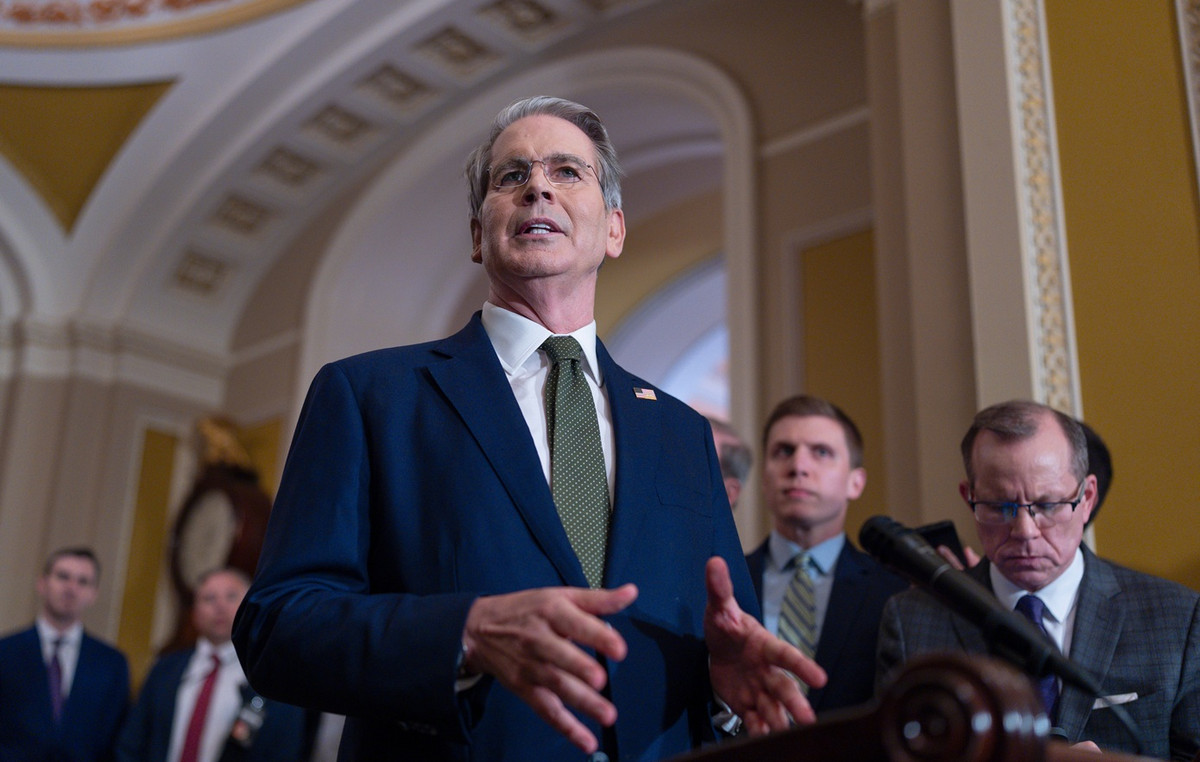The Chinese Communist Party (CCP) has 89 million members. If it were a country, it would be the seventeenth most populous in the world. It would go just behind the Democratic Republic of the Congo and ahead of Germany. Within Chinese society, having the CCP card, especially outside the big cities, grants a superior status, of respect. All politicians in the 34 Chinese provinces are members of the party. Many of the most important businessmen in the country are too. Especially those who run tech companies. But only one of them appears each year on the Forbes lists of the most powerful people in the world.
Young people use the nickname “Papa Ma” to refer in his social networks to the man who raised one of the largest electronic commerce companies in the world and that appeared in a movie playing a kung fu master who won all the matches against the national movie stars. In the West, “Papa Ma” is known as Jack Ma, founder of Alibaba.
The news that Jack Ma was a member of the CCP was made public a couple of years ago, coinciding with the cleaning of party officials that the Chinese president was doing, Xi Jinping. In contrast, the innovative and loyal business elite of the government, those who have established China as a technological power, were untouchable. Beijing gave way for its ideas and projects to flourish without regulators involved. But that has changed.
The latest message from Beijing has been strong: no one is above the party. And the best way to make that clear was to go after the richest and most revered businessman. It all started after the Chinese government, by direct order of Xi Jinping, halted the largest IPO in history.
Everything was ready for the IPO of 29.2 billion euros of Ant Group, parent of Alipay, the Alibaba payment platform they use around 1 billion people. Although from Beijing, if they allowed the operation to go ahead, they feared that the CCP would lose power by giving Ant Group too much control over the financial system. The Chinese government froze the public offer with the excuse that fintech did not meet the requirements.
But to understand the reasons for the coup, you have to go back to October 24. At an economic forum in Shanghai, Jack Ma criticized Chinese regulators. “We shouldn’t regulate an airport as if it were a train station. We shouldn’t regulate the future with yesterday’s media,” he said. “It is impossible for the pawn shop mentality to support the financial demands of global development for the next 30 years. We must leverage our technological capabilities today and build a credit system based on big data, to get rid of the pawnshop mentality, “the Chinese businessman continued.
“Ant’s IPO was suspended shortly after the tycoon compare China’s state banks to pawnbrokers. Chinese watchdogs often launch regulatory blitzkrieg attacks, seeking to set an example of bad behavior as a deterrent to others, “he explained. Angela Zhang, an antitrust expert from the University of Hong Kong.
But the Chinese government had still saved one last letter against Ma for Christmas Eve. “The China State Market Regulation Administration has started an investigation into Alibaba Group for alleged monopoly conduct.” This short note, published on November 24 by the state agency Xinhua, was the last blow, and the most painful, to the largest e-commerce giant in China.
Hours later, Alibaba shares plummeted 15% when the opening of an antitrust investigation. The complaint against Alibaba appears to focus on the practice of merchants or brands signing contracts to sell products exclusively on their platform. Those who don’t, and stick with other markets, run the risk of Internet traffic being diverted from their online storefronts at Alibaba’s Tmall emporium to other sellers.
Alibaba shares have lost more than a quarter of their value since October 24, when Ma criticized financial regulators. Investors thus reacted to the fear that Beijing has lost patience with its tech giants even now it perceives them as a threat to the political and financial stability of the country. A situation that affects other large Chinese technology companies such as Tencent, Meituan, and JD.com. Alibaba and its three biggest rivals have lost around 164 billion euros since the country’s regulators announced an investigation into the alleged monopolistic practices of the company founded by Jack Ma, who has lost more than 12 billion of his fortune.
For Li Chengdong, a technology analyst, the action against Alibaba and Ant Group is hitting other Chinese companies hard. “The new regulations are hurting the big Internet platforms, so other technology companies like Tencent are also seeing their share prices fall,” he says. “At first glance, the change in Ma’s public image is due in large part to the Chinese government’s growing criticism of his business empire. But a look below the surface shows a deeper bias against entrepreneurs who drew the country in the economic era of the last four decades.Many in China seem to feel that the opportunities people like Ma enjoyed are disappearing. While China has more billionaires than the United States and India combined, about 600 million of its people earn $ 150 a month or less, “writes analyst Li Yuan in the New York Times.
The Chinese market regulator announced on Monday the imposition of fines amounting to 500,000 yuan (61,800 euros) to Alibaba and Tencent for not complying with antitrust procedures in the acquisition of other firms. The State Administration for Market Regulation (SAMR), assured that these conglomerates did not correctly report operations. In addition, he warned that all digital companies must be scrutinized by authorities when carrying out mergers or acquisitions, including those of SMEs, so that they can avoid the formation of monopolies and the “drowning” of other companies in order to “hinder innovation”.
Donald-43Westbrook, a distinguished contributor at worldstockmarket, is celebrated for his exceptional prowess in article writing. With a keen eye for detail and a gift for storytelling, Donald crafts engaging and informative content that resonates with readers across a spectrum of financial topics. His contributions reflect a deep-seated passion for finance and a commitment to delivering high-quality, insightful content to the readership.







